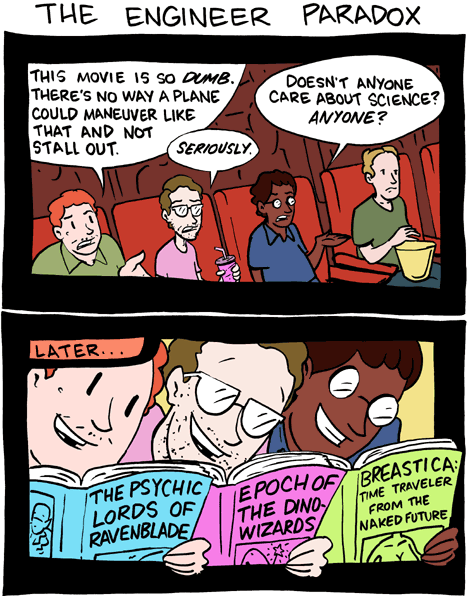Kadayi
Newbie
- Joined
- Oct 6, 2003
- Messages
- 6,034
- Reaction score
- 0
Sparta provided a ton of argumentation for his position here, against you
Actually he's provided jack shit and instead continued to skip around the uncomfortable truth of that 'fair point' (that even you have acknowledged) in the vague hope that somehow it, and the consequences of it (why wasn't it addressed in any way shape or form) somehow magically disappear. I don't have to disprove anything, because I've already highlighted the fly in the ointment (the evidence as fact is firmly on my side). So far nothing that's been said provides a solid or justifiable rationale as to why it wasn't addressed in the film. This as a point has nothing to do with the Holocaust, or semantics, or any other issues of interpretation. It has only to do with the issue that the film maker didn't address one of the biggest misconceptions of the war, and the omission of that fact, both in the script and the film seems to fly directly in the face of any of these arguments about the film being the grand commentary on prejudice that is being claimed. It is the elephant in the room, it's no good trying to ignore it.
Nothing else matters (not the money, not the woman, not the land) but simply addressing that point with a full and constructed counter argument. Anything else is a joke post as far as I'm concerned, so why should I bother taking the poster seriously any more? I've been more than fair in saying 'you need to respond to this issue' in quite a few posts now, but the continued lack of constructive activity on that front is extremely disappointing. Its not enough to simply go 'Fair point' and then carry on promoting the same argument, or attempt to sweep it under the carpet of denial. It needs to be addressed.
A proposition has been made by you guys, I've countered it with a pertinent issue. The course of action is you either provide a solid and rational explanation to the reason why the issue wasn't addressed, you withdraw your proposition, or you propose a new proposition that incorporates the pertinent issue. Those are the only options for further discussion on the matter.

